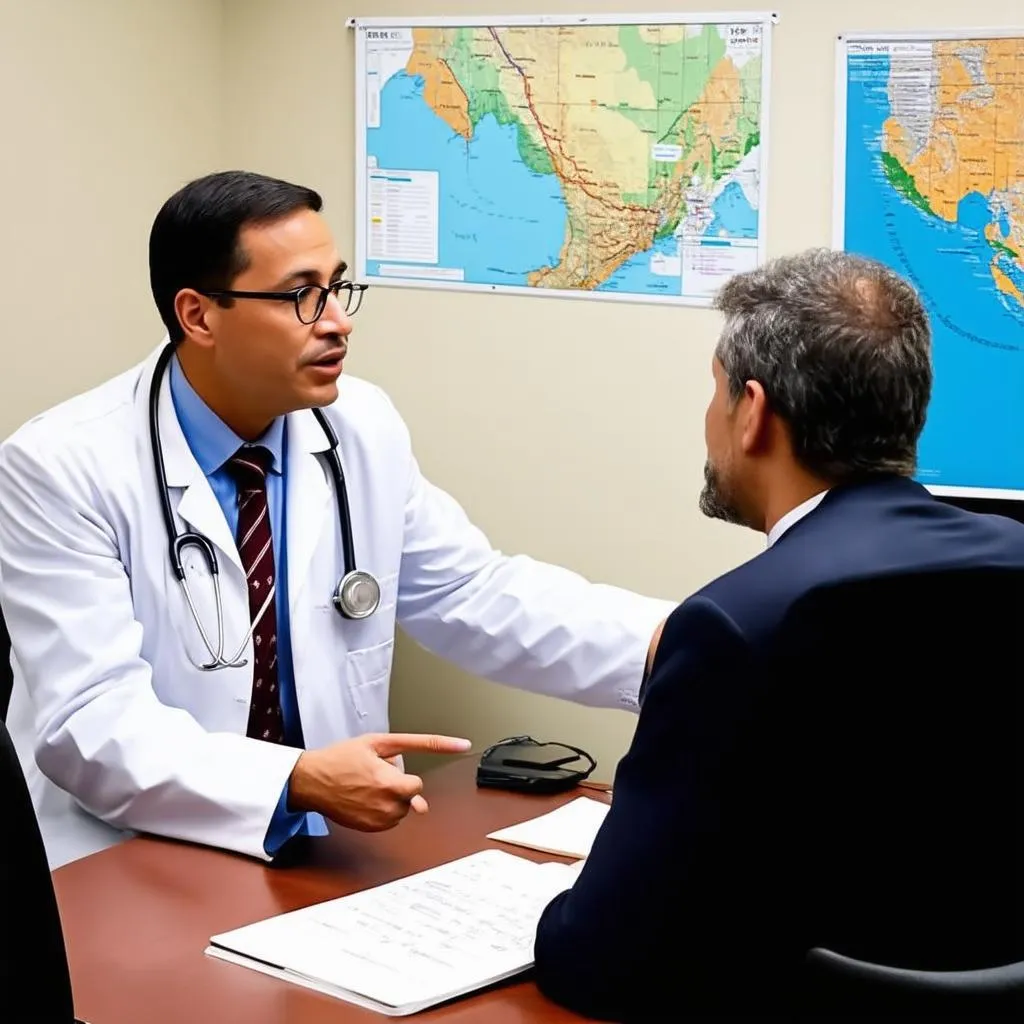Planning a trip abroad is always exciting, but for individuals living with HIV, additional considerations come into play. Many wonder, “Can I even travel abroad with HIV?” The answer is often a resounding “Yes!” but the specific requirements can vary significantly depending on your destination.
Understanding Travel Restrictions and Requirements
While the world has made progress in understanding and accepting HIV, some countries still retain outdated regulations regarding entry for individuals living with the virus. These restrictions can range from outright bans to mandatory testing upon arrival.
For example, let’s say you’re dreaming of exploring the ancient temples of Angkor Wat in Cambodia or wandering through the bustling markets of Marrakech, Morocco. You’ll be pleased to know these destinations have no travel restrictions for people living with HIV. You can freely enter and enjoy all they offer without any HIV-related concerns.
However, it’s essential to research each country’s specific regulations before you finalize your travel plans. A helpful resource is the International AIDS Society’s website, which provides up-to-date information on travel restrictions related to HIV.
Planning Your Trip: Essential Tips
1. Research Your Destination:
Knowledge is power, especially when planning international travel with HIV. Thoroughly research your chosen destination’s entry requirements related to HIV. Websites like TRAVELCAR.edu.vn offer valuable information on various destinations.
Questions to consider:
- Does the country have any restrictions on entry for people living with HIV?
- Will I need a special visa or provide proof of my HIV status?
- Are there any mandatory health screenings upon arrival?
2. Consult Your Healthcare Provider:
Before embarking on your journey, schedule a consultation with your doctor. They can provide personalized advice based on your health status, medications, and the specific requirements of your destination.
Your doctor can assist you with:
- Ensuring you have an adequate supply of medication for the duration of your trip, plus some extra in case of delays.
- Providing a letter from your physician explaining your medical condition and the need for your medications, especially if you are carrying syringes or other medical equipment.
- Recommending necessary vaccinations or preventative measures based on your destination.
3. Pack Smart:
Pack all your essential medications in their original packaging, clearly labeled with your name and prescription information. Keep them in your carry-on luggage to prevent any issues during transit.
4. Travel Insurance:
Invest in comprehensive travel insurance that covers your medical needs, including those related to HIV.
5. Know Your Rights:
Familiarize yourself with your rights as a traveler living with HIV. While most countries have become more inclusive, discrimination can still occur.
Embracing the Journey
Traveling with HIV might require some extra planning, but it should not deter you from exploring the world. Imagine strolling along the Seine River in Paris, with the Eiffel Tower illuminating the night sky, or witnessing the breathtaking sunrise over Machu Picchu. These incredible experiences are within reach with proper preparation and a sense of adventure.
Remember, traveling can be a transformative experience, broadening your horizons and creating memories to last a lifetime. With careful planning and awareness, you can confidently navigate the world and embrace all it has to offer.
Frequently Asked Questions:
Q: Can I get travel insurance if I have HIV?
A: Yes, several insurance providers specialize in travel insurance for individuals with pre-existing medical conditions, including HIV.
Q: What if I’m denied entry to a country because of my HIV status?
A: While rare, if you’re denied entry, contact your country’s embassy or consulate for assistance. They can provide guidance and support.
Q: Do I have to disclose my HIV status to airlines or hotels?
A: No, you are generally not required to disclose your HIV status to airlines, hotels, or other travel providers.
 Woman with HIV traveling abroad
Woman with HIV traveling abroad
 Doctor talking to patient about HIV travel precautions
Doctor talking to patient about HIV travel precautions
Remember, this information is for general guidance only. Always consult with your healthcare provider and relevant authorities for the most up-to-date and personalized advice.

